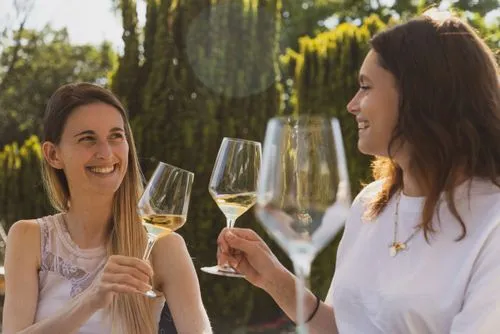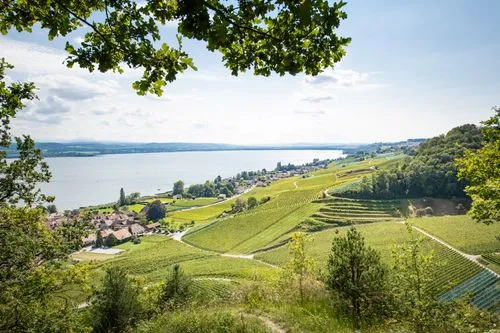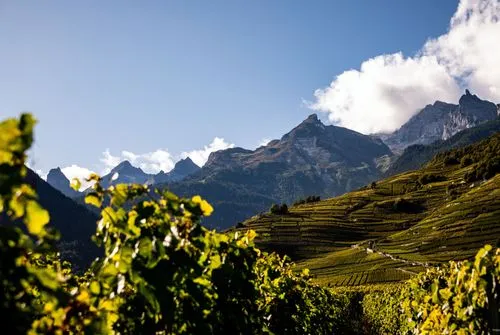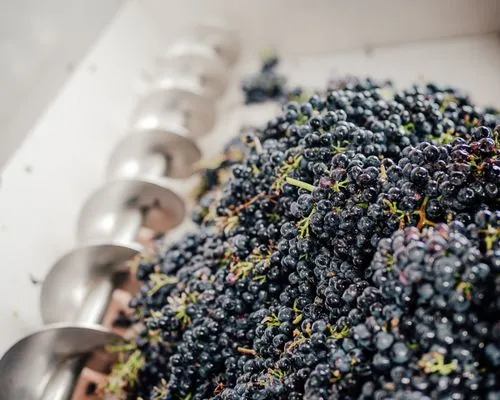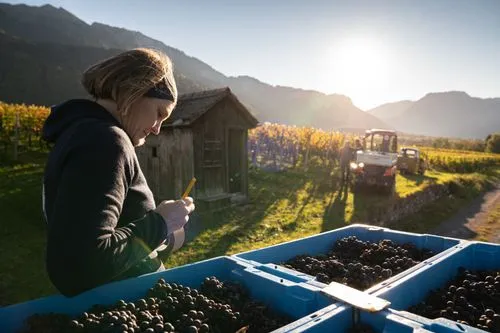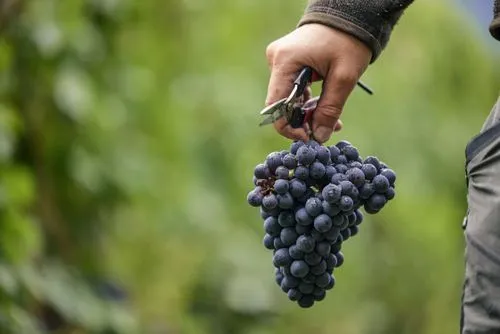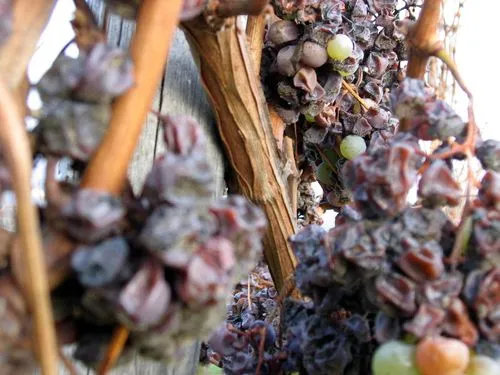Martin Hubacher's wine should have a sense of place
Martin Hubacher and his wife Michaela Gabriel run the Johanniterkeller in Twann. You should be able to tell from his wine that it comes from Lake Biel.
Martin Hubacher, when did you last drink a foreign wine?
That was last weekend. There are foreign wines that I really like, especially Pinot. It's exciting to see how these wines present themselves. Based on my experience, I can often tell what philosophy a winemaker has.
Do you draw inspiration from this for your own work?
Exactly, but without copying others. We want to make authentic wines from the Lake Biel region. But I find it interesting to see the differences within a grape variety. Of course, it's also about enjoyment! My wife and I often drink wines from colleagues around the world; we like to broaden our horizons.
How do you explain to your customers why they should prefer local wines over foreign ones?
The wines have short transport distances and at Johannitergut we practice controlled organic production. In addition, there is the personal contact with the winemaker. Those who come to us don't just buy wine, but a story. Customers learn how the wine was produced and what challenges the year brought.
Why is it worth spending a little more money on Swiss wine?
If you buy a ten-franc bottle of wine in the supermarket, you have no idea how it was produced. If people are serious about issues such as sustainability and biodiversity, then they should support local production.
Can Swiss wine match the flavour of those from well-known wine-producing regions in Italy or France?
Take Burgundy, for example: I maintain that we are of a higher quality in our price segment. However, I don't think that you should make such comparisons.
Why not?
At a tasting in my cellar, a guest once said that every wine was good, but when he compared it to this and that... At some point I said: You came to Lake Biel to get to know the local wines! Our own wine style is very important to us. Here at Lake Biel, too, the wines of the various winemakers differ – luckily! When it comes to grape varieties, it's a similar story.
You need to explain that in more detail.
Around 50 grape varieties are now grown in the Lake Biel region. I think that's a little dangerous. When I hear the name Merlot, for example, I think of Ticino. At the same time, I hope that people from Ticino come to the Three Lakes Region for Pinot Noir.
Are you advocating that each region should focus on its specialities?
Exactly. I don't think it's good when everyone does everything. People should take a trip to Lake Biel if they want to restock their cellar with Pinot Noir. The following year, they might go to Ticino to buy Merlot. That's also why I'm a bit sceptical about Piwis (fungus-resistant grape varieties) – even though I recently planted some myself.
Why?
Every year, 10 to 15 new Piwi varieties are introduced to the market. If we plant a new vineyard today, it will take four years before we can harvest the first grapes. Furthermore, we assume that the vines will live for 50 to 60 years. So with all these new varieties, we have no idea what will become of them. And there is another reason to be careful.
What is that?
Winegrowing is a centuries-old culture. Every winegrowing area has its own history. Imagine if, in Burgundy, they suddenly had to plant Piwi everywhere instead of Pinot Noir – no one would go there anymore! It's the same in Bordeaux. These regions have built up a reputation for their wines over centuries. For me, research should be going in the direction of finding a Pinot Noir that is resistant to mildew and can cope with the changing climate. This way we can retain our identity. If the day were to come when it gets too hot for Pinot Noir on Lake Biel, I would be very sad.
Your favourite grape variety is then probably not surprising...
Pinot Noir. You can make such exciting and diverse red wines from it. For me, this variety is second to none. And yet it is not everybody's favourite.
Pretium
Related Articles
All the news about Swiss wines and exclusive reports.
To visit our site, you must be of legal drinking age in your country of residence.
